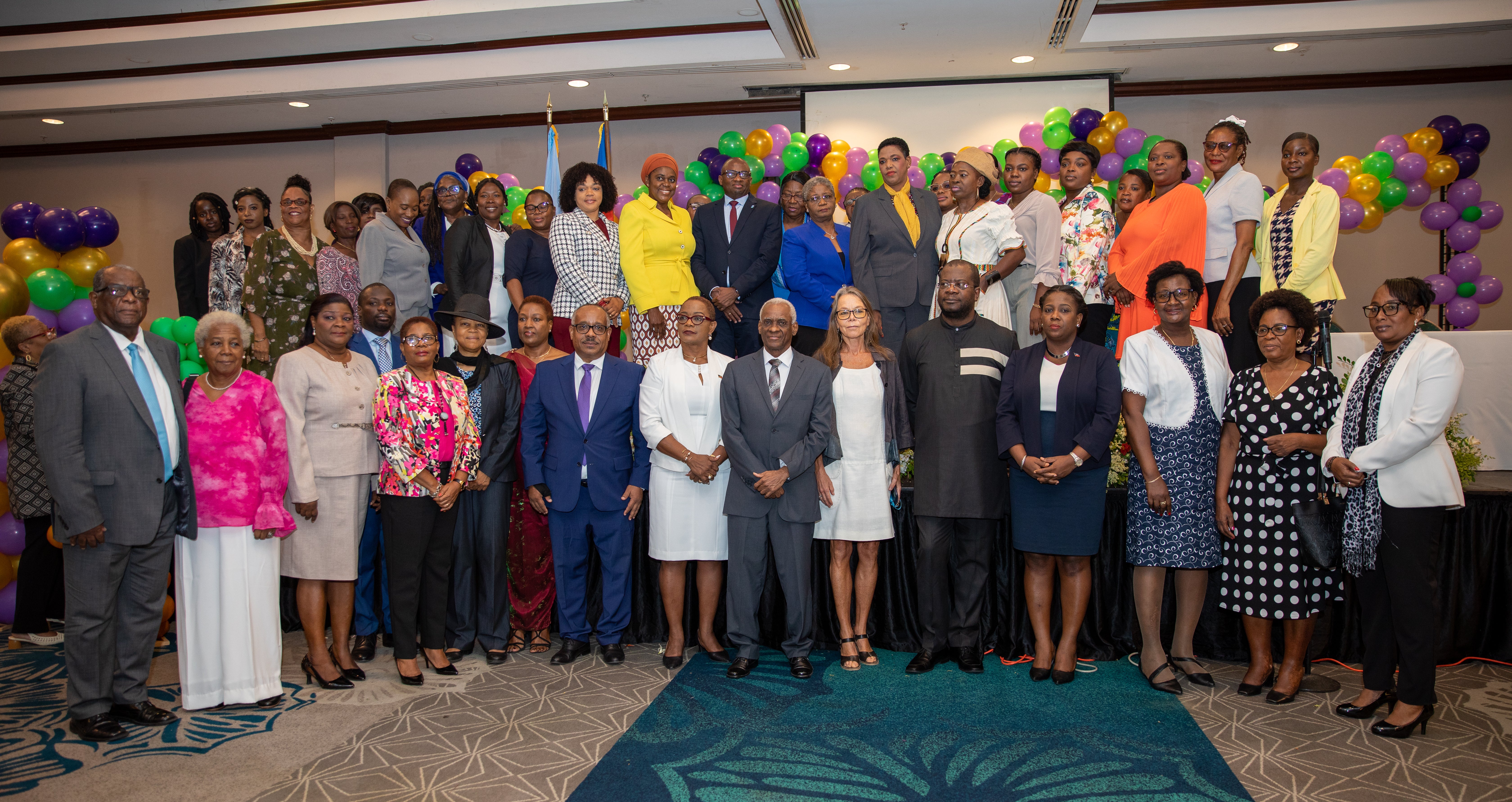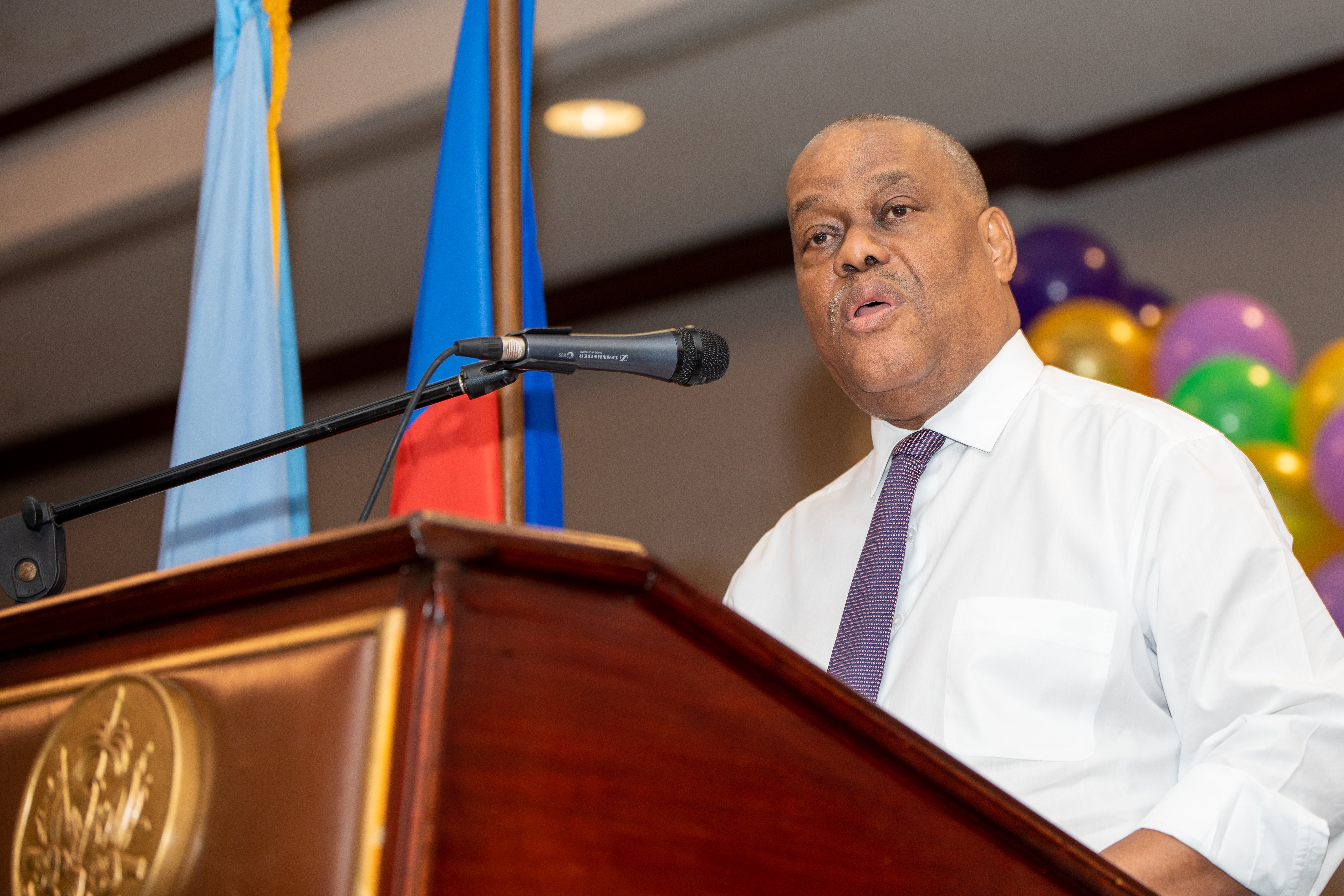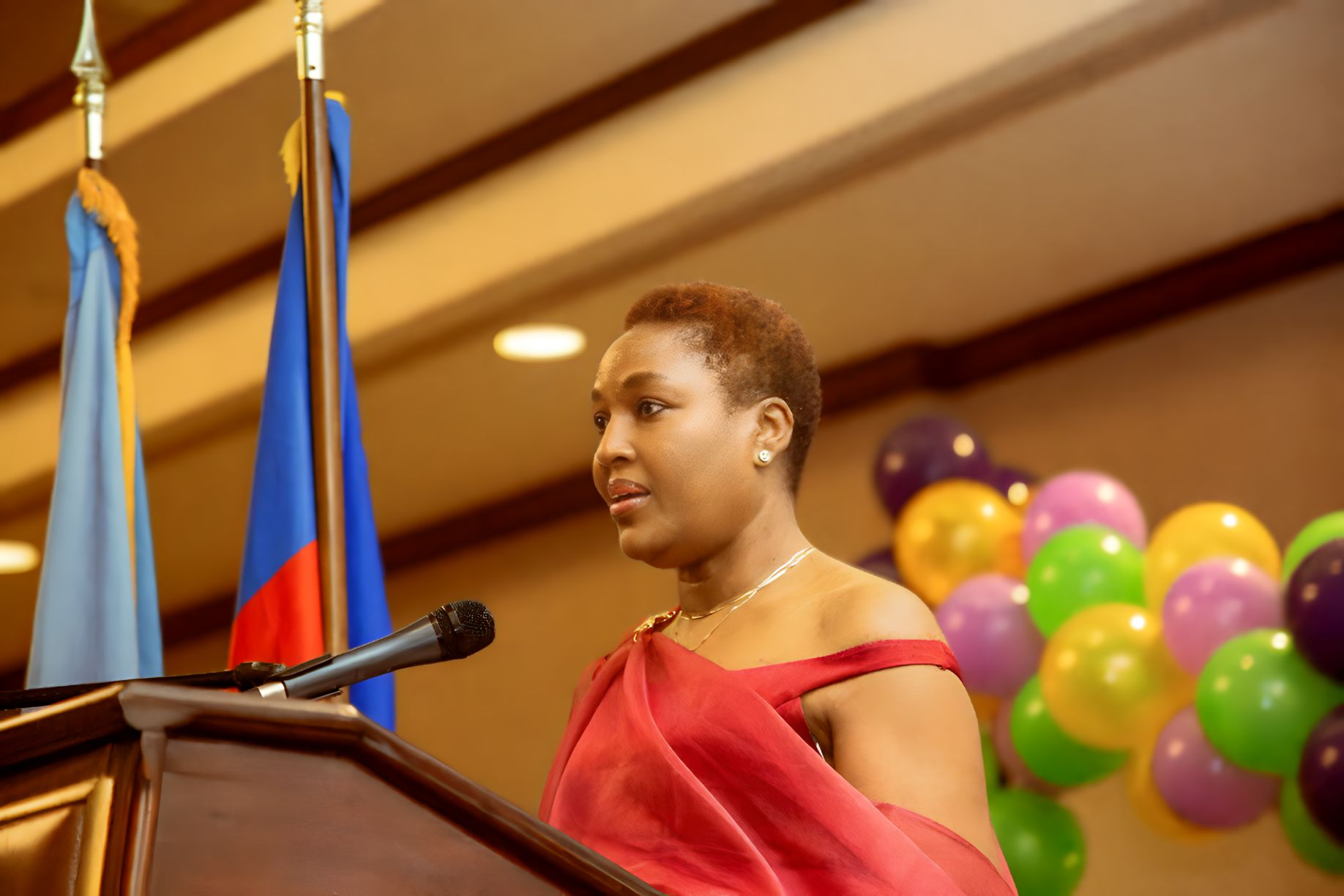National Symposium on Women: A New Momentum for the Engagement of Women in the Political Transition in Haiti
Date:

The Haitian political landscape reached a new milestone last month with the launch of the National Symposium on Women’s Engagement in the Political Transition. This event, organized by the Ministry for the Status of Women and Women’s Rights, under the high patronage of the Prime Minister, in partnership with UN Women and UNFPA, seeks to strengthen the political participation and leadership of women in the electoral transition period, by emphasizing the harmonization of the efforts of all partners to work against gender-based violence, including electoral violence against women.
Despite the ratification of several international conventions relating to the protection and promotion of women’s rights, such as the Convention for the Elimination of All Forms of Discrimination (CEDAW), the principle of equality and non-discrimination being enshrined in the Constitution alongside a 30 % quota for women at all levels and the development of a national gender policy and a gender action plan, Haitian women experience exclusion from participation in governance and public life. It is ranked 7th among countries with the lowest participation rate of women in parliament worldwide.

The Minister for the Status of Women and Women’s Rights and chair of the National Symposium, Ms. Marie Françoise Suzan, emphasized the need for a collaborative approach to combat gender-based violence while announcing new government initiatives supported by international partners. The Prime Minister, Mr. Garry Conille, acknowledged the essential role of women in the fight against gender-based violence and recognized the efforts and support of the Ministry for the status of Women and Women’s Rights to these women. The UN Resident Coordinator, Ms. Ulrika Richardson, highlighted the importance of respecting the minimum quota of 30% of women in leadership positions, as mandated by the 2017 constitution.

UN Women Haiti, as a key partner of the Ministry for the Status of Women and Women’s Rights, was mandated by the United Nations Country Team and the Humanitarian Team to present the essential elements of an Action Plan developed by humanitarian actors to prevent gender-based violence, protect and provide holistic care to gender-based violence survivors. Ms. Goretti Nduwayo, UN Women Representative in Haiti, highlighted the importance of the National Symposium as a catalyst for lasting change as well as a platform for action that brings together diverse actors to build a future where Haitian women can fully and fearlessly participate in public life and engage on gender-based violence.
It is important to understand the context faced by Haitian women. They are under-represented in all areas of decision-making, both in terms of their participation in elections as candidates, election observers, and voters and in the context of social and civic mobilization. They represent less than 30% of ministers, only 2.7% in the National Assembly during the 50th legislature, and 11,7% of the Haitian National Police. Today, there are 0% of women in the Superior Council of the Judiciary, and they represent about 10 to 12% of the judiciary system. Some of the factors explaining this weak presence are the pervasive negative gendered stereotypes of female leadership ability, political and electoral violence against women, the absence of regulatory frameworks, binding measures, and related accountability mechanisms to enforce the 30 % quota. Women’s movements and political parties are far from establishing a common agenda to provide the ground for women’s political activism.
An initiative financed by the Peace Building Fund and implemented by UN Women Haiti in the past five-year period, under the project “Reduction of violence against women during electoral processes,” strategic allies from Haiti´s political ecosystem joined efforts to support civil platform structures for the peaceful participation of women in elections and to strengthen women’s capacities through the Women’s Platform to monitor political and electoral violence. One of the project´s key results was the creation of the “Alliance of Networks and Platforms of Women’s Organizations for Political Participation and Female Leadership,” with more than 740 member organizations and 250,000 women spread across the country’s ten departments, to promote political leadership, women’s representation and the reduction of political and electoral violence against women, in Haiti. The Alliance carries out community awareness-raising actions on the prevention and monitoring of violence against women along election cycles and women’s political leadership.
Under the motto: “Let’s harmonize to fight against gender-based violence,” the National Symposium held at the Karibe Hotel brought together many influential figures engaged in the promotion of gender equality and the empowerment of women in the political arena during this particular political transition period. High-level leaders included the President of the Presidential Transitional Council, the Prime Minister, Government Institutions, the Resident Coordinator and Humanitarian Coordinator, UN Agencies, International Organisations, a strong delegation of the National Haitian Police, women’s organizations, and civil society.

The National Symposium marks the start of a series of initiatives intended to transform the role of women in Haitian society. By placing women’s engagement at the heart of the political transition, the Haitian government, with the support of its international partners, is sending a strong signal in favor of gender equality and the fight against gender-based violence, including electoral violence against women.
Women in Haiti are the heads of almost half of the households in Haitian society. Therefore, the trade-off between political engagement and household well-being largely prevents them from engaging in public life. Security threats and the unsupported burden of household care make the opportunity cost for women to run for office or develop a political career disproportionately high. Among the flagship initiatives announced at the National Symposium, a partnership was built between the Ministry of Women’s Affairs and Women’s Rights and the National Archives to distribute national identity cards to women. This approach aims to strengthen women´s presence in the upcoming national elections, an essential leverage to ensure their equitable participation in decision-making. In addition, the Haitian government unveiled a 50 million gourdes’ economic support plan to promote the economic integration of women and young mothers across the country, a concrete measure to strengthen their active role in society.
UN Women Haiti remains engaged alongside the Haitian government in collaboration with the Ministry for the Status of Women and Women’s Rights to ensure that the commitments made at the National Symposium are translated into concrete actions, enabling the women of Haiti to fully participate, engage and lead in the political arena as well as ensuring that political spaces for women in Haiti are free of electoral violence against women and recognition is made to women who make substantial contributions to the country’s democracy and development.